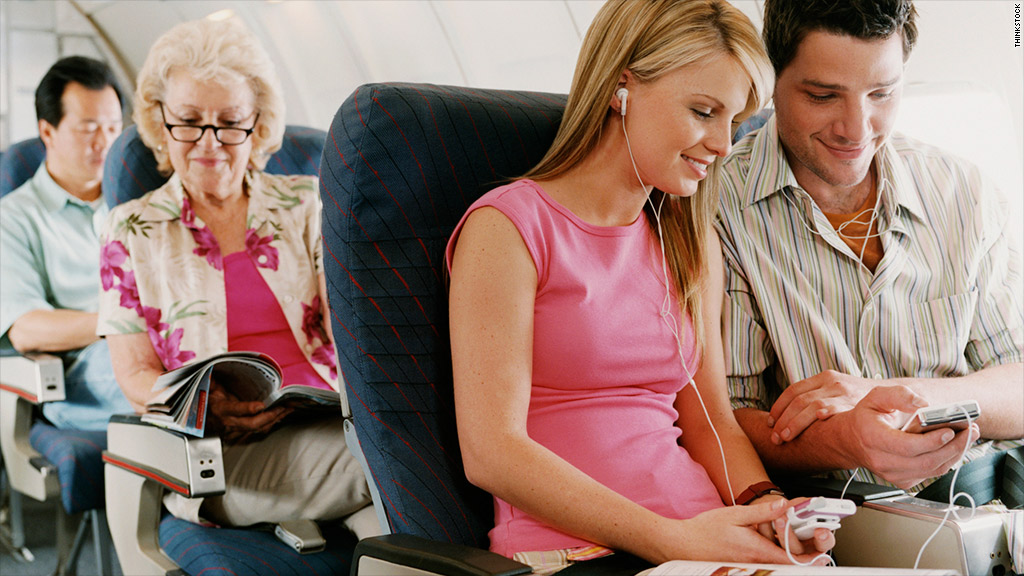
Good news for frequent-flyer gadget lovers: A federal regulator thinks it's about time you should be able to use your e-reader on planes during take off and landing.
Federal Communications Commission Chairman Julius Genachowski on Friday called the Federal Aviation Administration's policy on in-flight electronics use into question, advocating that the agency allow for greater use of those devices during flights. The FAA will be holding a working group to investigate gadgets on planes, but cell phone use will not be reviewed.
In a letter from Genachowski to FAA administrator Michael Huerta unearthed by The Hill, the FCC boss was plainspoken and direct in his feelings on the matter.
"This review comes at a time of tremendous innovation, as mobile devices are increasingly interwoven in our daily lives," Genachowski wrote. "They empower people to stay informed and connected with friends and family, and they enable both large and small businesses to be more productive and efficient, helping drive economic growth and boost U.S. competitiveness."
Despite the fact that 20 years of testing still hasn't definitively proved that cell phones, let alone any other electronic device, can cause aircraft interference, passengers are still prohibited from using tablets and e-readers during takeoff and landing.
In August, the FAA released a study on the in-flight use of cell phones -- devices which operate on the same frequency as navigational aircraft equipment -- in multiple European countries, and no direct incidents of interference were found. Two anomalies in Belgium did pop up, though the cause was left inconclusive. Though there have been plenty of instances where passengers have left their cell phones on during flight, there have been no reported problems regarding cell phone interference that have been positively linked to gadgets. Yet we're still worried about non-transmitting devices.
Many an opinion piece has been written on the issue over the years, calling for the rule to be abolished. Some critics claim it is because the FAA does not want to spend the money on testing each particular electronic device in the air and on the ground to ensure that interference won't be an issue.
Some airlines have suggested over the years that the reason we can't use basic electronics, such as tablets and e-readers, during flight is that they want passengers to pay attention if there's an issue during that time (the majority of fatal accidents occur during takeoff and landing). Of course, it's not illegal to use a book. Suggesting than an e-reader is somehow more distracting than a book is a dubious argument at best.
Boeing (BA), for its part, has insisted that the use of cell phones and electronics has caused anomalies with navigation equipment, but even the airline manufacturing giant hasn't been able to replicate those scenarios. It even went as far as to buy some of the suspected devices off of passengers, but the interference couldn't be duplicated in its tests.
Thanks to the fact that most commercial planes have been designed to travel through heavy electromagnetic zones and are properly shielded to prevent the transmission of electromagnetic signals from inside the plane to outside the plane (and vice versa), there has been little risk of the navigation hardware going haywire. Even In-flight Wi-Fi has been deemed perfectly safe.
No one is calling for an overnight policy change on in-flight cell phone usage (though Genachowski argues it needs to be allowed sooner than later). Yet it's unclear why gadgets that don't transmit signals continue to be banned. Anyone who believes that using an iPod during takeoff and landing will endanger a flight needs a reality check.

